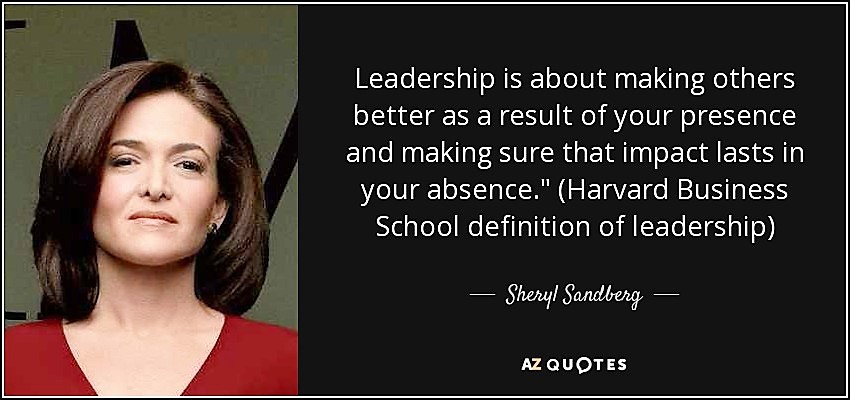“Leadership is about making others better as a result of your presence and making sure that impact lasts in your absence”, Sheryl Sandberg.
Your charity has a funding gap and decides to look for income from corporate partnerships to fill the gap. A corporate partnership manager is hired and given a KPI of $1mln to raise. Two years later, the CEO knows that the corporate partnership manager has been busy as they always work long hours, look stressed and their phone never stops ringing with requests. But they never get close to their KPI: why?
One of the great fallacies of fundraising is that you simply need to hire a fundraiser and the money will miraculously appear. True, it can’t be done without some of the talented people out there. But a corporate partnership is not a formula, like direct marketing or face to face. It’s about strategy and relationships. It’s not a speed date but a search for an enduring marriage. That is what makes them different and why they take much longer to come to fruition.
Most importantly, a significant corporate partnership needs the active commitment and participation of an NFP’s leadership and board. Partnerships need the whole organisation and must be driven from the top. There are four key things that the leadership of an NFP needs to do to ensure success in corporate partnerships:
- Tell me where I’m going
The organisation’s strategy must be agreed and clearly articulated. If you don’t know where you’re going, how can you persuade a large corporate to come on the journey? Ensure that the partnership plan delivers on the strategy and that everyone understands it. No alignment means no buy-in from staff and no compelling reason for the corporate to partner with you. Don’t worry if your future direction is a long way from your current state; ambition is just as important as the day to day and often more attractive to a partner.
- Give the gift of time- donor nurturing and stewardship
Corporates need relationships at the highest level where decisions are made. Leaders needs to allocate time to know your donors and make the relationship personal, for example, using calls, letters, thank-you videos. That means prioritising fundraising over internal meetings. Remember that you don’t choose partners- THEY choose YOU.
- Build an internal culture of relationship fundraising
Use internal communications and processes to build a shared understanding of why corporate partnerships are important and the role of all staff in making them successful. This may mean changing processes, recruitment or KPIs to drive the necessary changes. Breaking down silos will benefit not just corporate partnerships but the whole organisation.
- Tell the story and make it compelling
CEOs and boards need to tell the organisational story using consistent, compelling and emotional stories. This may mean drawing on their personal experiences and history with the charity, but also using the marketing and branding activities of the organisation. Inspiration is a vital part of the value proposition to corporate partners.
The reward for a committed and active leadership will be higher value and longer term partnerships. You’ll also avoid the high turnover of fundraising staff which impacts negatively on relationships. If you want success in corporate partnerships, then start at the top.
If you need help to train your leadership in corporate partnerships, then contact us about our workshops at info@stellarpartnerships.com

